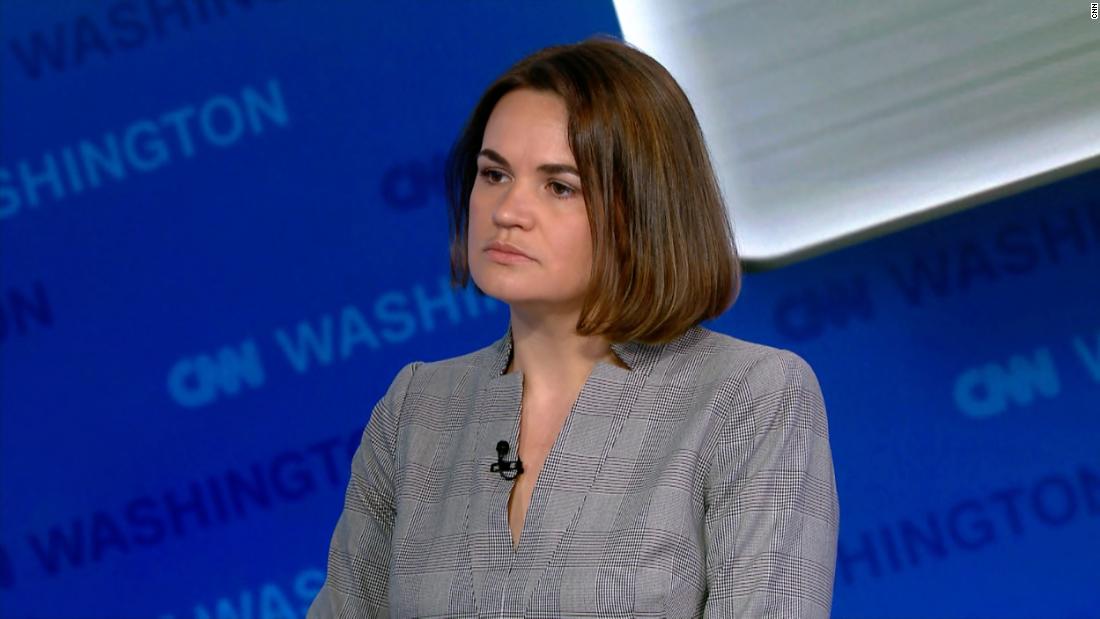
This story was excerpted from the July 20 edition of CNN’s Meanwhile in America, the daily email about US politics for global readers. Click here to read past editions and subscribe.
Tsikhanouskaya’s husband was jailed to stop him from running in an election last year that international observers said was neither free nor fair. She ran instead and has since been forced into exile in Lithuania. There must be serious concerns for her safety — which a high-profile trip to the US will only exacerbate. After all, Lukashenko’s government forced the landing of a Ryanair flight last month and arrested an opposition journalist. And bad things happen to those who cross Lukashenko’s patron, Russian President Vladimir Putin. Inside Belarus, activists have been handed long prison terms and the government blacks out the internet.
“I have to think about my safeness. But first of all we have to think about the safeness of those people who are inside of our country. … It’s very dangerous to be in Belarus now,” Tsikhanouskaya told CNN’s Jim Sciutto.
Joe Biden has put the preservation of democracy and pushing back against strongmen at the center of his presidency — after the world’s self-styled tough guys were idolized by Trump. So his government can hardly have not met Tsikhanouskaya when she was in Washington, even though her reception is hardly likely to please Putin as US-Russia relations wallow in their worst slump since the end of the Cold War.
Tsikhanouskaya is urging the US and Europe to ramp up more sanctions on Belarus. Her visit will test whether Biden’s campaign is mostly rhetorical or has teeth. It’s also a valuable service to America, by showing what happens when democracies die.
The anti-China front
Here’s how Biden’s confrontational policy toward China is different from Trump’s: While the former President preferred a go-it-alone showdown with Beijing as a possible new Cold War looms, the current one wants backup.
So when the United States accused China of widespread hacking in cyberspace on Monday — in a major escalation — it gathered its friends in Europe, Asia and Australia to bolster its offensive.
The allegations are staggering. The allies say that China’s Ministry of State Security — a civilian state intelligence agency — contracted criminal hackers to conduct a serious of attacks, including on Microsoft.
The administration said China was also behind a specific ransomware attack against a US target — that included a demand for millions of dollars.
The level of Chinese activity, which the government in Beijing is likely to deny, surprised the White House, officials said, since most of the focus of attacks on US infrastructure, including food production and an oil pipeline, had been on Russia and criminal gangs apparently allowed to operate with impunity there.
But the broad front of allies united against Beijing is a sign of how Biden hopes to convince American allies around the world to band together to force China to observe what Washington calls international rules of the road. It doesn’t always work: For instance, the European Union doesn’t have an awful lot of appetite for talk of a new Cold War and has been less adamant than the US on trade issues. But at the same time, China is not going to like it.



